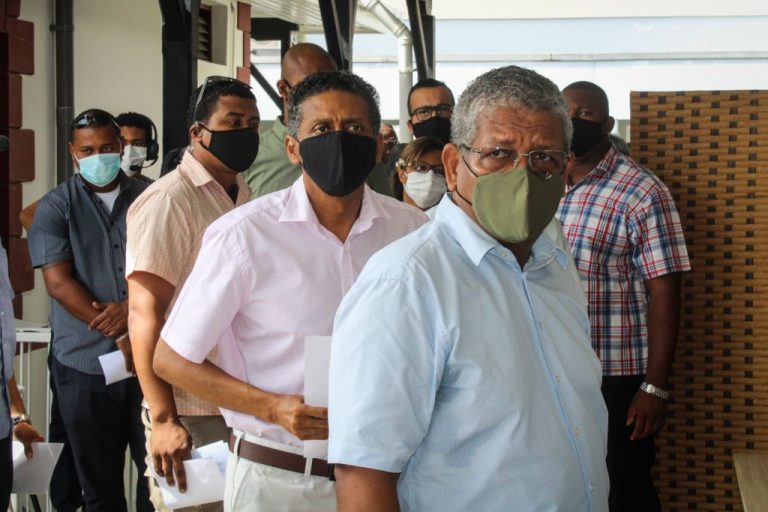A tiny tourist hotspot in an archipelago off the eastern coast of Africa recently drew international attention after statistics showed a major spike in positive PCR tests for SARS-CoV-2 despite the country boasting the title of the world’s most vaccinated.
As of May 9 statistics for Seychelles’ vaccination drive show the island leads the world with the approximate 65 percent of its 97,600 citizens who have been fully vaccinated, according to Reuters COVID-19 Tracker. However, both Bloomberg’s People Covered vaccination tracker and Reuters’ metric simply take the number of total doses handed out, in this case 127,721 according to Reuters, and divide by two.
Reuters states: “Seychelles has administered at least 127,721 doses of COVID vaccines so far. Assuming every person needs 2 doses, that’s enough to have vaccinated about 65.4% of the country’s population.”
“This vaccine rollout data is reported by the number of doses of coronavirus vaccines administered, not the number of people who have been vaccinated. Because most vaccines require two doses and many countries have different schedules to deliver the second dose, we don’t know with this data how many people have ultimately received both doses,” they say.
Seychelles uses the Chinese Communist Party’s Sinopharm inactivated virus variant, donated by the United Arab Emirates, and AstraZeneca’s notorious Covishield adenovirus vector variant as their injections of choice. This selection is similar to battered India, who uses domestically produced Covaxin, also an inactivated virus vaccine, in conjunction with Covishield.
Success
You are now signed up for our newsletter
Success
Check your email to complete sign up
While it should be noted that correlation does not prove causation, just as how there was a noticeable connection in positive PCR tests and COVID-19-associated death count in India to the country’s vaccination drive, the same correlation appears in Seychelles’ statistics.
Bloomberg’s data shows Seychelles’ injection drive taking off on roughly Jan. 22. Daily new positive PCR tests in the country were extremely minimal in 2020 according to Worldometers. Most days reported zero, but the high was on June 28 at 58. The count started to pick up consistently on Dec. 28, with 39 increasing to a high of 106 on Jan. 22. Between then and April 29, the statistic oscillated between as low as 12 and as high as 189.
But on April 30 and May 3, media attention was drawn to the country after two staggering new highs were recorded at 314 and 510 new positive tests respectively.
An examination of positive case count over time based on data from Worldometers showed Seychelles only had 275 positive tests between the beginning of the pandemic and Jan. 1, 2021. That number increased to 975 by Jan. 22, and has increased steadily ever since.
The island has a total of 6,373 positive tests and 28 deaths since the pandemic began according to John Hopkins.
Perhaps most notably, the island also had zero deaths before recording its very first on Jan. 4, 2021.
Seychelles Health Minister Peggy Vidot told a press conference the “Covid-19 situation in our country is critical right now,” as the government enacted a wave of new measures such as closing schools and cancelling sports, as well as forcing bars, restaurants, casinos, and shops to close early in the tourism-reliant island. They also now have an 11 p.m curfew.
BBC said four fifths of active positive tests were attributed to residents of the island and one fifth to tourists. The vaccination drive does not appear to have helped, however. Of current active cases, two thirds are either unvaccinated or have received one dose, while the other third have received two doses, according to May 4 data from the Seychelles News Agency.
At the press conference, officials were unsure as to what caused the surge, but attributed it to citizens being lax with following government mandates and gatherings around the Easter holiday. They do not appear to have provided data to supplement the hypothesis.
Sherin Francis, Chief Executive of the Seychelles Tourism Board, summed up the issue when she told Washington Post, “Vaccines are very effective at preventing serious illness and death; they are less good at preventing infection.”
With reporting by Prakash Gogoi














